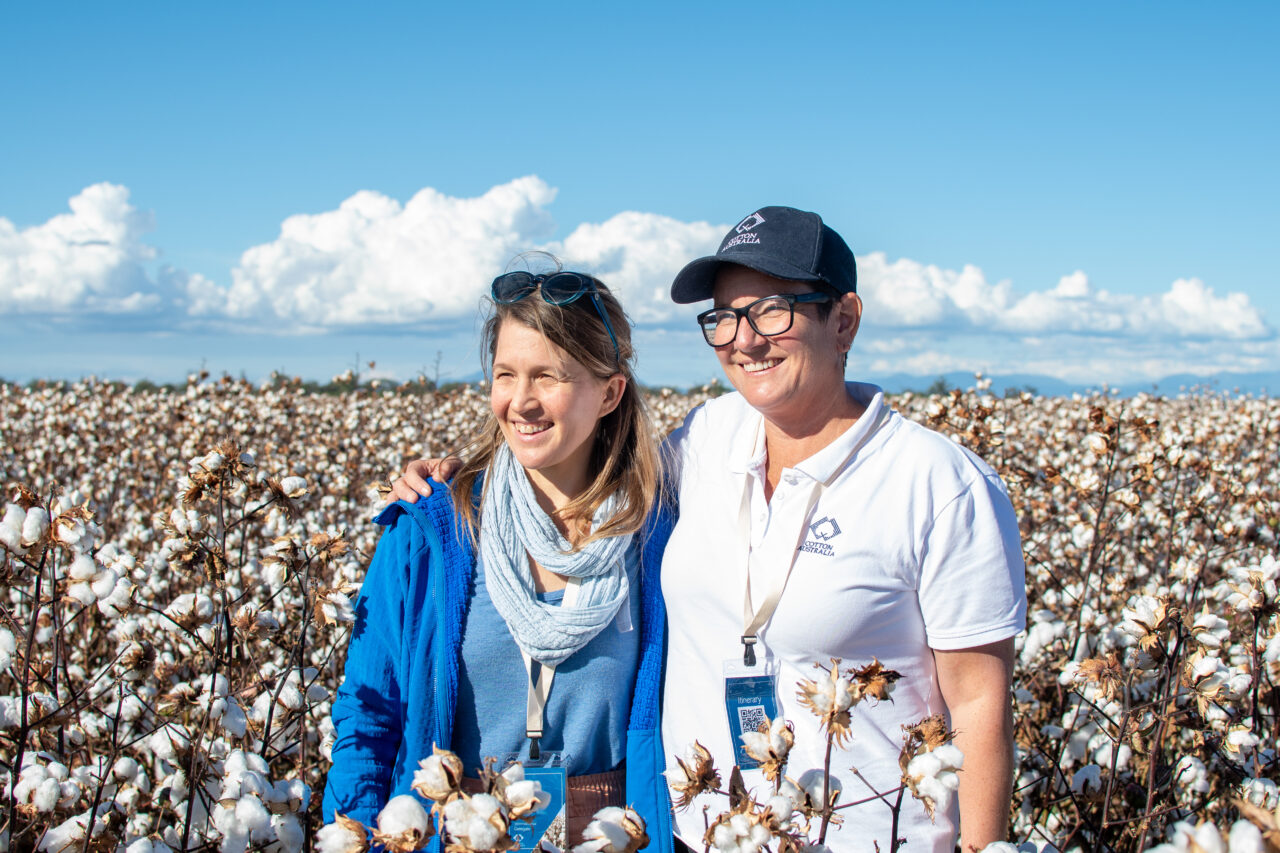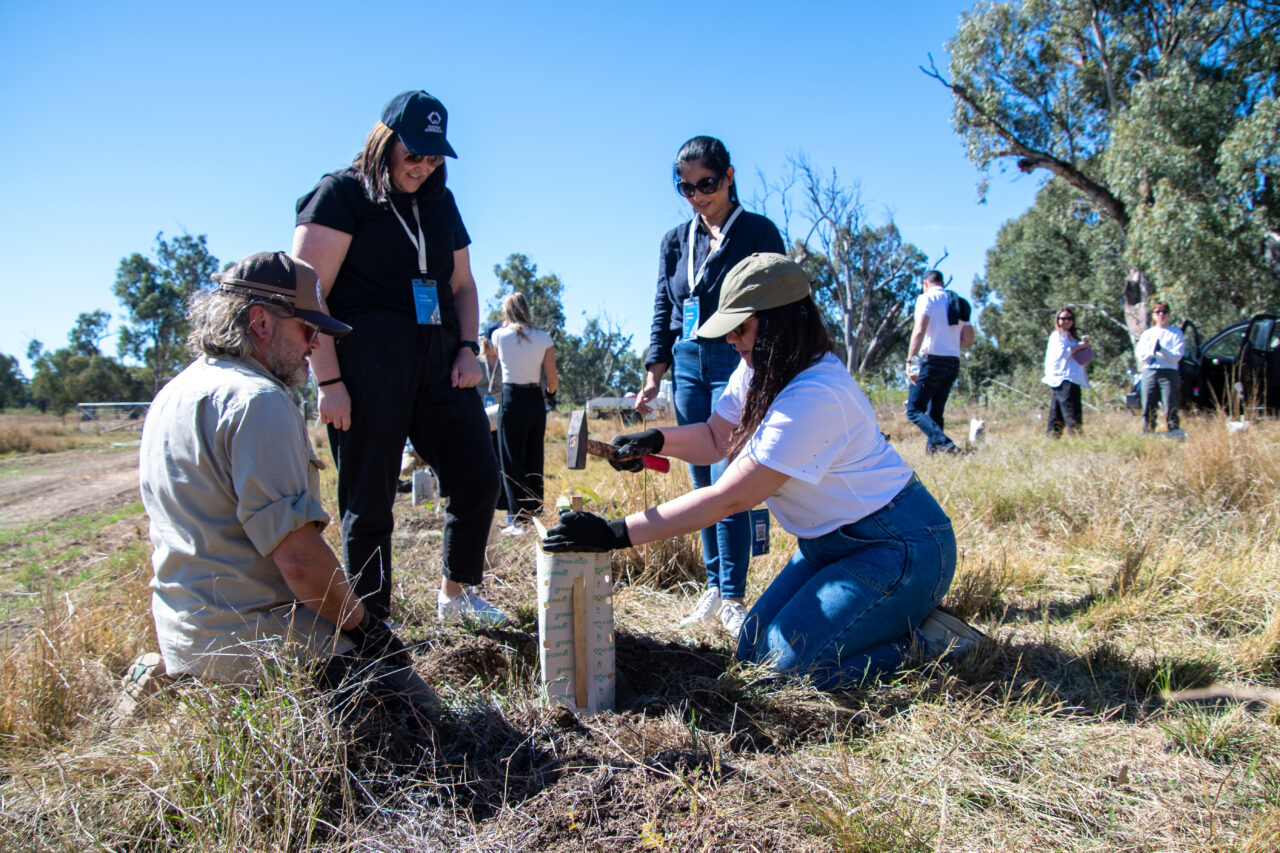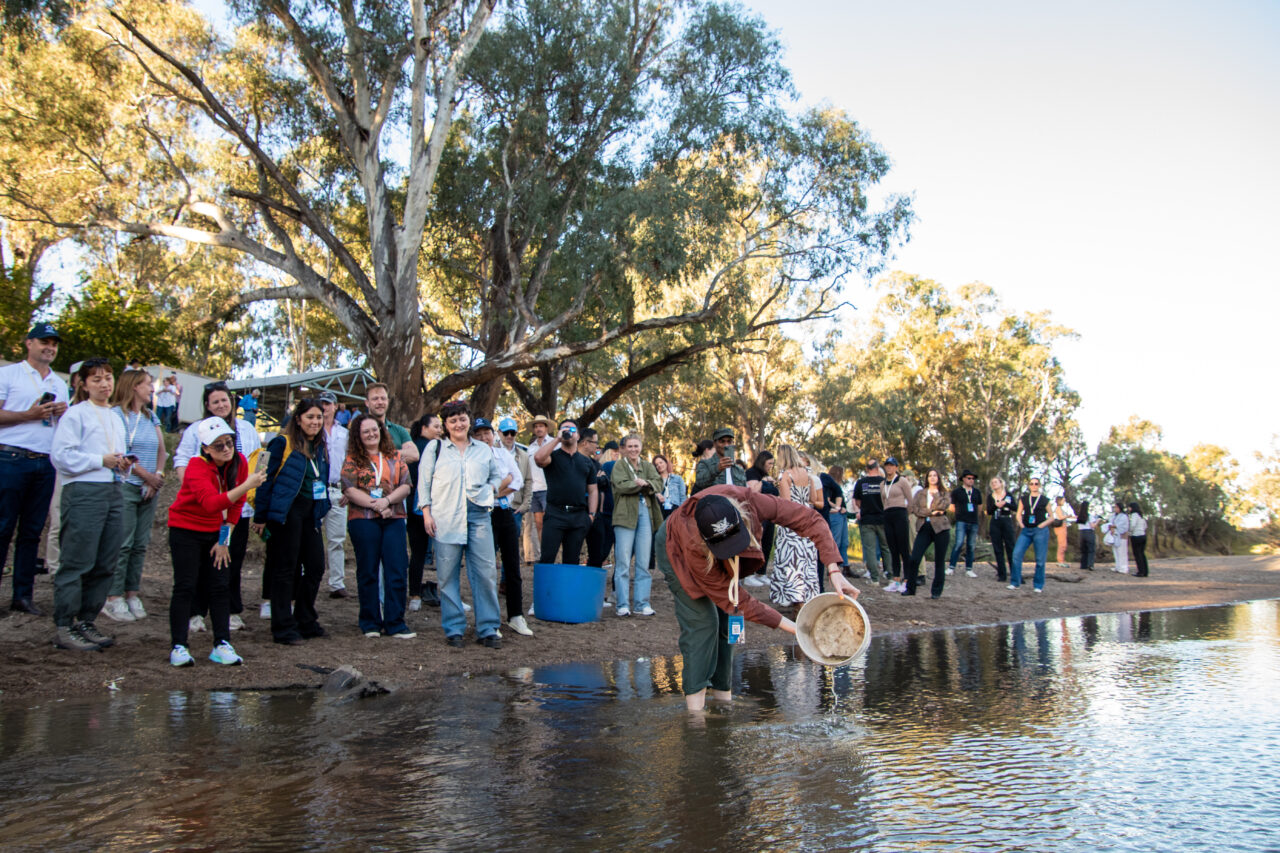In the Australian cotton industry, sustainability, transparency, science, and collaboration are more than just buzzwords—they are the cornerstone of its global appeal.
The demand for Australian cotton is on the rise, particularly after 62 delegates attended Cotton Australia’s 2024 Camp Cotton aspired an even greater surge in interest. Camp Cotton is Cotton Australia’s annual major stakeholder event for the supply chain, starting with a full day forum in Sydney followed by two days touring the industry in North West NSW.
International brands such as Lacoste, Gymshark, Nike, Versace, and Kathmandu, along with Australian icons like Country Road, Cotton On Group, Sussan, Propel Group, and Coles, universally labelled the event as "incredible." Delegates also represented textile and sustainability organisations such as Textile Exchange, Better Cotton, the U.S Trust Protocol, the Organic Cotton Accelerator and Baptist World Aid.
These delegates, some of the most influential figures in fashion and sustainable textiles, were eager to understand why Australian cotton is a global leader and how they can integrate it into their sourcing strategies.
This marks the second consecutive year Cotton Australia has hosted international delegates, thanks to funding from the Australian Government’s ATMAC program. The 2024 tour, the largest to date, welcomed 62 participants from brands, retailers and other organisations spanning 15 countries.
Initially delegates met in Sydney for the Australian Cotton Forum, where they were joined by an additional 260 guests that heard from industry experts about topics such as impact data, circularity, soil carbon and the family farming operation. From Sydney, Camp Cotton delegates boarded a flight to Tamworth where they emersed themselves in Australian cotton through visits to the Watson and Kahl family farms, the Australian Food and Fibre Gin, Cotton Seed Distributors (CSD), and the Australian Cotton Research Institute.

There were Crop Capsule and IPM drone demonstrations, tree planting at a Country Road Landcare Biodiversity site, morning tea from the Country Women’s Association and hands on research experiments such as Soil Your Undies to demonstrate soil health.
The tour culminated in an outdoors riverside dinner with over 60 local cotton industry people where they heard from the local Mayor, witness a Welcome to Country and released thousands of native fingerlings into the Namoi River.
For many delegates, it was their first time seeing cotton growing in the field, with a real highlight being part of the cotton harvest at the Kahl family farm in Wee Waa.
From New York, Jessica Somers, Global Head of Sustainability and Partnerships for fashion brand 3.1 Phillip Lim, spoke highly of the importance of connecting with the Australian cotton industry, and like-minded delegates.
"Consumers seek brands that align with their values. Beyond aesthetics, understanding the origins and craftsmanship of a garment resonates deeply with them," she said.
What struck brands the most was the industry's collaborative, innovative, and transparent approach to cotton production, reinforcing Australia's leadership in the global cotton market.
Propel Group's (home to iconic Australian brand RB Sellars) CEO, Jim Gall, a wool producer himself, attended the tour and was impressed by the industry's scientific advancements and its ability to "walk the talk."

"We are all about supporting Australian farmers. To visit the Kahl’s farm and hear their pioneering story is extraordinary. Sustainability goes far beyond water use efficiency, IPM, processing, and research—it's more about the community and the people," Jim said.
For most brands, Camp Cotton was also an opportunity to understand the Australian cotton story so it can be shared back with internal teams and customers.
"If the customer knows an Australian farmer has produced the cotton ethically under sustainable practices, it’s not just about how the product looks and feels, but how they feel about the product. That story is very important," Jim added.
In the 11 years since the inception of Cotton to Market, more than 61 million units of clothing and household items have been verified as made with Australian cotton. This program currently has 47 licensed brand partners, and that number continues to grow, with a 27% increase from 2022 to 2023.
A major factor driving the demand for Australian cotton is its strong credentials in data, sustainability, and traceability – all aspects that are receiving heightened scrutiny in the European Union and other major premium markets. According to Cotton to Market Lead, Brooke Summers, who has been part of every Camp Cotton tour since 2015, there was a rising demand for brands to demonstrate the sustainable sourcing of natural fibres.
“We have been blown away by the delegates' thirst for knowledge about our industry during the latest Camp Cotton tour, their questions and their genuine interest in understanding where Australian cotton fibres come from,” Brooke said.
“To have influential international brands visit Australia, learn about our industry, and take that information back to their companies and customers is invaluable. We invited the delegates with no expectations other than to learn about the industry, and the innovative, science-driven practices of our farmers, and to meet the cotton farming community.”
“Equally valuable was the session where we gathered feedback from delegates on the industry’s performance, where we’re doing well and what could be improved. There’s no doubt sustainability, science and the collaborative nature of the industry shone through as major strengths, with delegates pointing out that we need to tell this story better, and make sure we can trace our fibres through to the finished product,” she said.

Among the highlights of the tour was a visit to the Kahl family’s Merced Farming, in Wee Waa. Daniel, who also spoke at the Forum in Sydney with his father James and brother Sam, hosted the delegates not once, but twice during the tour.
For Daniel and the family, the experience gave great insight to the attitudes and priorities of the other end of the supply chain.
“What was really positive, and gave us a real buzz, was seeing how engaged and interested the delegates were in learning about our industry at the ground level,” Daniel said.
“They have a real, genuine interest in learning about where the fibres they use are coming from, and building a better understanding of what is important to us as growers.
“The biggest benefit to the industry from Cotton to Market, besides the economic benefits of access to markets, is to tell that story alongside our supply chain partners who have far greater access to and acceptance from our consumer.”
“After hosting the delegation, we feel optimistic that improvements made by growers and the industry have a purpose, are valued by those down the supply chain and are worth continuing,” Daniel said.
As the demand for transparency, traceability, data and sustainable practices continues to rise, Cotton to Market is poised to lead the way in connecting Australian cotton growers with global markets and to help ensure market access in a fast-changing world. The initiative not only underscores the quality and sustainability of Australian cotton but also develops a deeper understanding and appreciation of the entire supply chain among international brands and the stkeholders that influence them.
